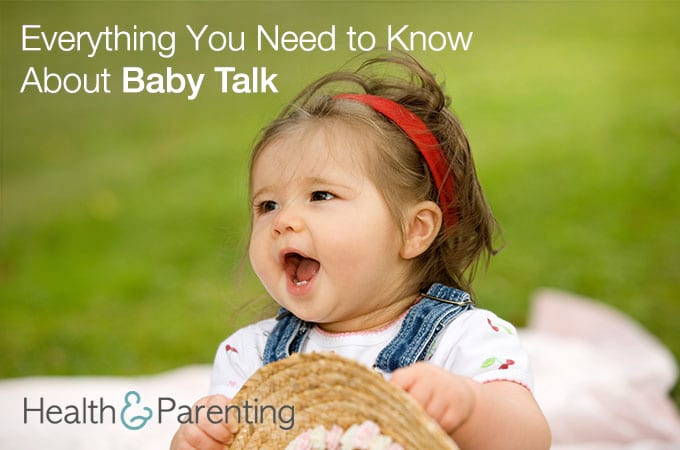What is baby talk?
Baby talk is that hideously annoying thing you hear other parents doing sometimes which is totally adorable and perfectly acceptable when you do it with your own kids. When speaking to babies, you may find yourself drawing out your vowel sounds, speaking in a high-pitched voice and using words like ‘gigi’ instead of ‘horse’. That’s baby talk.
Baby talk is often referred to as ‘motherese’. It sounds sexist, but researchers have found that moms are more likely than dads to use baby talk. Baby talk may be a little embarrassing in public, but it could have great benefits for your baby’s developing brain.
One study found that baby talk boosted language development. Babies who frequently heard baby talk spent more time babbling. Participants were followed up a little while later and those babies who heard the most baby talk had grown into the toddlers with the biggest vocabularies.
If the thought of whipping out your best baby talk at the grocery store fills you with dread, worry not. Baby talk was found to have the biggest impact on language development when it was used in a one-on-one situation. This attentive environment heightens learning and allows babies to babble back. So there’s no need to go public with your motherese, you can keep it as your little secret for now.
How to help your baby learn to talk
If you’re keen to encourage your baby to talk, you could try the following:
- Motherese – as explained above, spending one-on-one time conversing with your baby using baby talk could be beneficial for language development.
- Chat – it doesn’t have to be baby talk, but your baby needs to hear lots of words to aid language development. The more you talk to your baby, the more opportunity he has for learning.
- Books – if you’re struggling for conversation with your baby (it’s not easy when they don’t chat back), reach for a storybook. You can read the story or simply discuss what you see in the pictures. Either way, your baby will be benefiting from listening to you talk.
- Respond – it may sound like your baby is randomly making hilarious noises, but that babble is his early attempts at conversation. Chat to him by repeating the sounds back to him.
- Focus – background noise can make it difficult for babies to concentrate. Make sure you spend quality time in a quiet environment each day together. Turn off the television so your baby can really focus on the sounds you make.
What steps do you take to encourage your baby’s language development?
Written by Fiona (@Fiona_Peacock), mother, writer and lover of all things baby related.
This information is not intended to replace the advice of a trained medical doctor. Health & Parenting Ltd disclaims any liability for the decisions you make based on this information, which is provided to you on a general information basis only and not as a substitute for personalized medical advice. All contents copyright © Health & Parenting Ltd 2016. All rights reserved.










